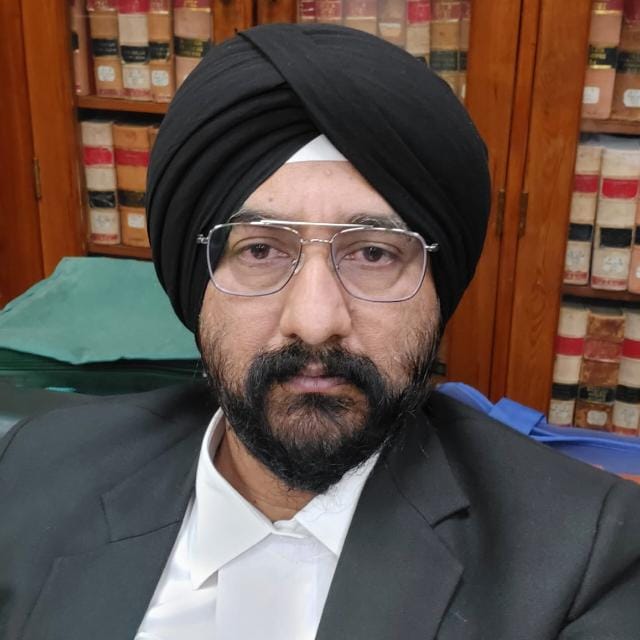Ensuring Fairness in Arbitration: The Landmark Supreme Court Judgment in Perkins Eastman v. HSCC (India) Ltd. (2019)
Rajinder Pal Singh Advocate
6/23/20253 min read


In recent years, the Indian judiciary has taken significant steps to reinforce the principles of
impartiality and fairness in arbitration proceedings. One such landmark decision came in the case of Perkins Eastman Architects DPC & Anr. v. HSCC (India) Ltd. (2019), where the Supreme Court of India addressed the issue of unilateral appointment of arbitrators by interested parties. This ruling has far-reaching implications for arbitration practices in India, particularly in contracts involving public sector undertakings and international entities.


Background of the CasePerkins Eastman Architects DPC, a New York-based firm, and Edifice Consultants Pvt. Ltd.
Mumbai-based company, formed a consortium that was awarded a contract by HSCC Ltd., a government enterprise, for providing architectural services for the AIIMS project in Guntur, Andhra Pradesh. The contract included an arbitration clause stating that disputes would be resolved by a sole arbitrator appointed by the Chairman and Managing Director (CMD) of HSCC. Subsequently, HSCC issued a stop-work notice to the consortium, citing alleged non-compliance with contractual obligations. The contract was eventually terminated. Perkins Eastman and Edifice contested these actions and invoked the arbitration clause. HSCC unilaterally appointed a sole arbitrator after the lapse of the stipulated 30-day period. The consortium challenged this appointment and sought the Supreme Court's intervention under Section 11(6) read with Section 11(12)(a) of the Arbitration and Conciliation Act, 1996. (India)
Legal Issues and Supreme Court's Ruling & The Supreme Court considered two central issues:
1. Whether a party to the dispute, who is ineligible to act as an arbitrator due to vested interests, can unilaterally appoint a sole arbitrator.
2. Whether the dispute qualifies as an international commercial arbitration under Section 2(1)(f)
of the Arbitration and Conciliation Act, given the foreign registration of Perkins Eastman Architects DPC.
On the first issue : the Court emphatically held that a party who is ineligible to act as an arbitrator cannot appoint another arbitrator. Such unilateral appointments violate the principle of nemo judex in causa sua" (no one should be a judge in their own cause). The Court cited its earlier judgment in TRF Ltd. v. Energo Engineering Projects Ltd. (2017), where it had ruled that if a person is disqualified from being an arbitrator, they also cannot appoint one.
Ultimately :the Court set aside the appointment made by HSCC and appointed Dr. Justice as the sole arbitrator to ensure an impartial and fair resolution.
Implications of the Judgment : The Perkins Eastman judgment reinforces the importance of neutrality in arbitral proceedings and restricts the ability of interested parties to influence the appointment of arbitrators. It builds upon the jurisprudence developed in prior cases and promotes greater transparency in dispute resolution, especially in public sector contracts.
For practitioners :this decision underscores the necessity of carefully drafting arbitration clauses, particularly avoiding provisions that give unilateral powers to one party. It also assures international players that Indian arbitration law is evolving to align with global best practices.
Conclusion : The Supreme Court's ruling in Perkins Eastman v. HSCC marks a pivotal moment in Indian arbitration law. It sends a strong message about the judiciary's commitment to uphold fairness, impartiality, and due process in arbitration. As India positions itself as a hub for international arbitration, such judgments play a critical role in enhancing confidence in its legal and dispute resolution systems. This case serves as a guiding precedent for future contractual and arbitration practices, particularly in ensuring that no party can be both a litigant and a judge in the same dispute.
Final words : In a world where commercial relationships are becoming increasingly complex and cross-border , in nature, the need for credible, transparent, and unbiased arbitration mechanisms cannot be overstated. The judgment in Perkins Eastman v. HSCC is not just a legal milestone—it is a reaffirmation of India's commitment to the rule of law and justice. By disallowing self-serving arbitration practices, the Supreme Court has laid a strong foundation for a more equitable dispute resolution landscape, one that fosters trust among domestic and international stakeholders alike. As arbitration becomes the preferred method for resolving disputes, this landmark verdict will continue to serve as a beacon of fairness and judicial integrity for years to come




Expert legal counsel for individuals and businesses.
Rajinder Pal Singh Advocate
9810310132
Since 1998
Designed By Digital Singh
